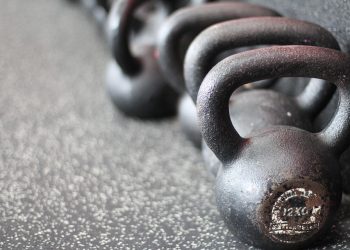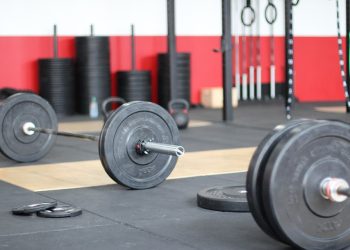Weight Loss: Separating Science from Fad
The quest for weight loss is a journey many embark on, often bombarded with conflicting advice and enticing promises. The sheer volume of information – from celebrity-endorsed diets to revolutionary supplements – can make it difficult to discern what truly works and what’s simply a fad. This article aims to cut through the noise, exploring the science behind sustainable weight loss and debunking common myths associated with fad diets.
Understanding Sustainable Weight Loss
At its core, weight loss boils down to a simple equation: calories consumed versus calories expended. When you consistently burn more calories than you consume, your body taps into its stored energy reserves (fat) to make up the difference. However, sustainable weight loss is about more than just restricting calories. It’s about making long-term lifestyle changes that support overall health and well-being.
Key Principles of Science-Based Weight Loss
- Calorie Deficit: Creating a moderate calorie deficit (approximately 500-750 calories per day) is crucial. This can be achieved through a combination of dietary changes and increased physical activity.
- Balanced Nutrition: Focusing on whole, unprocessed foods like fruits, vegetables, lean protein, and whole grains provides your body with the nutrients it needs while minimizing calorie intake.
- Regular Physical Activity: Exercise helps burn calories, build muscle mass, and improve cardiovascular health. Aim for at least 150 minutes of moderate-intensity aerobic activity or 75 minutes of vigorous-intensity aerobic activity per week.
- Behavior Modification: Addressing underlying eating habits and emotional triggers is essential for long-term success. Techniques like mindful eating and cognitive behavioral therapy (CBT) can be helpful.
- Consistency and Patience: Sustainable weight loss is a gradual process. Avoid drastic measures and focus on making consistent, incremental changes over time.
Fad Diets: The Allure and the Pitfalls
Fad diets are characterized by their short-term promises, restrictive rules, and often lack of scientific evidence. While they may lead to rapid weight loss initially, they are rarely sustainable and can even be harmful to your health.
Common Characteristics of Fad Diets:
- Rapid Weight Loss Claims: Promising to shed pounds quickly without significant effort.
- Restrictive Food Lists: Eliminating entire food groups or severely limiting calorie intake.
- “Secret” Ingredients or Formulas: Relying on special supplements or combinations of foods to boost weight loss.
- Lack of Scientific Evidence: Not supported by robust scientific research and often based on anecdotal evidence.
- Unsustainable in the Long Term: Difficult to maintain and often lead to rebound weight gain.
Examples of Popular Fad Diets and Their Downsides:
- Keto Diet: Extremely low in carbohydrates, forcing the body into ketosis, where it burns fat for fuel.
- Potential Downsides: Nutrient deficiencies, constipation, “keto flu” (headaches, fatigue), and potential long-term health risks for some individuals.
- Juice Cleanses: Restricting intake to only fruit and vegetable juices for a period of time.
- Potential Downsides: Lack of essential nutrients, muscle loss, blood sugar fluctuations, and can be harmful for individuals with certain medical conditions.
- Detox Diets: Claiming to eliminate toxins from the body through specific foods or supplements.
- Potential Downsides: The body has its own detoxification systems (liver and kidneys). These diets offer little benefit and can sometimes be dangerous. They can lead to dehydration, electrolyte imbalances, and nutrient deficiencies.
- Intermittent Fasting (IF): Cycles between periods of eating and voluntary fasting on a regular schedule.
- Potential Downsides: While IF can be a helpful tool for some, it’s not for everyone. Potential downsides can include headaches, fatigue, irritability, and disordered eating patterns for some. It is not recommended for individuals with a history of eating disorders.
- Carnivore Diet: Restricting intake to only animal products.
- Potential Downsides: Extremely restrictive and lacks essential nutrients found in plant-based foods. High in saturated fat and cholesterol, potentially increasing the risk of heart disease. Significant fiber deficiency leads to digestive issues.
Why Fad Diets Fail in the Long Run
While fad diets may produce initial weight loss, they are often unsustainable due to several factors:
- Muscle Loss: Severe calorie restriction can lead to muscle loss, which slows down metabolism and makes it harder to lose weight in the long run.
- Metabolic Adaptation: The body adapts to calorie restriction by slowing down its metabolic rate, making it more difficult to burn calories.
- Hormonal Imbalances: Restrictive diets can disrupt hormone levels, leading to increased hunger and cravings.
- Nutrient Deficiencies: Eliminating entire food groups can lead to deficiencies in essential vitamins and minerals.
- Psychological Impact: Feeling deprived and restricted can lead to feelings of guilt, shame, and ultimately, giving up on the diet.
The Science of Satiety: Feeling Full and Satisfied
A key component of sustainable weight loss is understanding the science of satiety – the feeling of fullness and satisfaction after eating. Certain foods and eating patterns promote satiety, helping you to feel fuller for longer and reduce overall calorie intake.
Factors Influencing Satiety:
- Protein: Protein is the most satiating macronutrient, helping to regulate appetite and promote muscle growth. Include lean protein sources like chicken, fish, beans, and lentils in your diet.
- Fiber: Fiber-rich foods like fruits, vegetables, and whole grains add bulk to your meals, helping you to feel fuller and more satisfied.
- Healthy Fats: Healthy fats, such as those found in avocados, nuts, and olive oil, can also contribute to satiety.
- Water: Drinking plenty of water throughout the day helps to fill you up and can prevent overeating.
- Volume: Eating foods with a high water content and low calorie density, like soups and salads, can help you feel fuller without consuming a lot of calories.
Building a Sustainable Weight Loss Plan
Instead of chasing the latest fad diet, focus on building a sustainable weight loss plan based on scientific principles and tailored to your individual needs and preferences. Consider working with a registered dietitian or healthcare professional to develop a personalized plan.
Key Steps to Building a Sustainable Plan:
- Set Realistic Goals: Aim for a gradual weight loss of 1-2 pounds per week.
- Track Your Food Intake: Keeping a food diary can help you identify areas where you can reduce calories.
- Prioritize Whole Foods: Focus on eating whole, unprocessed foods as the foundation of your diet.
- Increase Physical Activity: Find activities you enjoy and incorporate them into your daily routine.
- Manage Stress: Stress can lead to overeating. Find healthy ways to manage stress, such as exercise, yoga, or meditation.
- Get Enough Sleep: Lack of sleep can disrupt hormones that regulate appetite, leading to increased hunger and cravings.
- Seek Support: Surround yourself with supportive friends, family, or a weight loss support group.
The Role of Mindful Eating
Mindful eating is a technique that involves paying attention to your food and the eating experience without judgment. It can help you become more aware of your hunger and fullness cues, preventing overeating and promoting a healthier relationship with food.
Principles of Mindful Eating:
- Eat Slowly and Deliberately: Take your time to savor each bite and pay attention to the taste, texture, and aroma of your food.
- Minimize Distractions: Turn off the TV, put away your phone, and focus on your meal.
- Pay Attention to Hunger and Fullness Cues: Eat when you’re hungry and stop when you’re satisfied, not stuffed.
- Avoid Emotional Eating: Be aware of your emotions and find healthy ways to cope with stress and other negative feelings.
- Practice Gratitude: Appreciate the food you’re eating and the nourishment it provides.
Supplements: Hype vs. Help
The supplement industry is vast, and many products claim to boost weight loss. However, most weight loss supplements lack scientific evidence and may even be harmful. It’s crucial to be skeptical of these claims and consult with a healthcare professional before taking any supplements.
Important Considerations Regarding Weight Loss Supplements:
- Lack of Regulation: The supplement industry is not as strictly regulated as the pharmaceutical industry, meaning that products may not contain what they claim and may have hidden ingredients.
- Limited Evidence: Many weight loss supplements have little or no scientific evidence to support their effectiveness.
- Potential Side Effects: Some weight loss supplements can have serious side effects, such as increased heart rate, blood pressure, and anxiety.
- Interactions with Medications: Weight loss supplements can interact with medications you may be taking.
- Focus on Lifestyle Changes: Supplements should not be seen as a substitute for a healthy diet and regular exercise.
Weight Loss and Mental Health
It’s important to acknowledge the strong connection between weight loss and mental health. Focusing solely on the numbers on the scale can be detrimental to your self-esteem and overall well-being. A healthy approach to weight loss prioritizes body positivity and mental wellness.
- Body Image: Strive for a positive body image regardless of your size. Focus on what your body can do, rather than what it looks like.
- Self-Compassion: Be kind to yourself throughout the weight loss journey. Recognize that setbacks are normal and don’t let them derail you.
- Mental Health Support: If you struggle with body image issues, disordered eating, or other mental health concerns, seek professional help from a therapist or counselor.
Weight Loss for Specific Populations
Weight loss approaches may need to be adjusted based on specific populations and health conditions. Considerations for these specific groups are described as follows:
- Older Adults: Muscle mass decreases with age, making it even more important to prioritize protein intake and resistance training to preserve muscle.
- Pregnant and Breastfeeding Women: Weight loss is generally not recommended during pregnancy and breastfeeding. Focus on a healthy diet to support the growth and development of the baby. Consult a doctor.
- Individuals with Diabetes: Careful management of blood sugar levels is crucial. Work with a registered dietitian or certified diabetes educator to develop a safe and effective weight loss plan.
- Individuals with Heart Disease: A heart-healthy diet low in saturated and trans fats is essential. Consult with a cardiologist or registered dietitian for specific recommendations.
Conclusion
Sustainable weight loss is a journey, not a destination. It requires a commitment to making long-term lifestyle changes based on scientific principles. Avoid the allure of fad diets and instead focus on creating a balanced, nutrient-rich diet, engaging in regular physical activity, and cultivating a healthy relationship with food and your body. Remember to prioritize your mental health and seek professional guidance when needed. By taking a science-based approach, you can achieve your weight loss goals in a safe and sustainable way, leading to improved health and overall well-being.
Frequently Asked Questions (FAQs)
-
Q: How quickly should I expect to lose weight?
A: A healthy and sustainable rate of weight loss is 1-2 pounds per week. Losing weight too quickly can lead to muscle loss and metabolic slowdown.
-
Q: What is the best diet for weight loss?
A: There is no one-size-fits-all diet. The best diet is one that you can stick to long-term and that provides you with the nutrients you need. Focus on eating whole, unprocessed foods and creating a calorie deficit.
-
Q: Is exercise necessary for weight loss?
A: While it is possible to lose weight through diet alone, exercise is highly recommended. It helps burn calories, build muscle mass, and improve overall health.
-
Q: What are some healthy snack options for weight loss?
A: Good snack options include fruits, vegetables, nuts, seeds, yogurt, and hard-boiled eggs. Choose snacks that are high in protein and fiber to help you feel full and satisfied.
-
Q: Are weight loss supplements safe?
A: Many weight loss supplements lack scientific evidence and may have harmful side effects. Consult with a healthcare professional before taking any supplements.
-
Q: How do I deal with cravings when trying to lose weight?
A: Identify the triggers for your cravings. Try healthier substitutions. Stay hydrated. Practice mindful eating and manage stress.
-
Q: What do I do if I hit a weight loss plateau?
A: Plateaus are normal. Re-evaluate your calorie intake and exercise routine. Make small adjustments and stay consistent.
-
Q: Can I still eat my favorite foods while trying to lose weight?
A: Absolutely! Deprivation can lead to binge eating. Allow yourself to enjoy your favorite foods in moderation as part of a balanced diet.
-
Q: How important is sleep for weight loss?
A: Very important! Lack of sleep can disrupt hormones that regulate appetite, leading to increased hunger and cravings. Aim for 7-9 hours of quality sleep per night.
-
Q: Should I focus on weight loss or body fat percentage?
A: Body composition (muscle mass vs. fat mass) is often a better indicator of health than weight alone. Focus on building muscle and reducing body fat percentage through a combination of diet and exercise.












